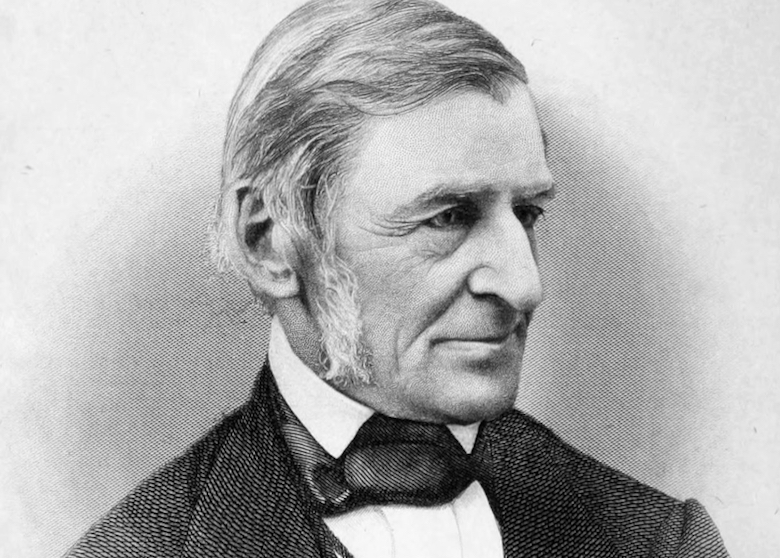Transcendentalist Ralph Waldo Emerson (1803 -1882) was a New England preacher, essayist, lecturer, poet, philosopher, and advocate for social reform. One of the most influential writers and thinkers in the United States during the 19th century, he was the first major American literary and intellectual figure to explore and write about non-Western modes of thinking, metaphysical concepts, and sacred mythologies.
Born in Boston, Massachusetts, Emerson was influenced by the writings and teachings of his father, William Emerson, a Unitarian minister. He attended the Boston Latin School, Harvard University, and the Harvard School of Divinity. Licensed as a minister in 1826, he was ordained to the Unitarian church in 1829. Following the death of his first wife, Ellen Tucker, in 1829, grief-stricken and in a crisis of faith, Emerson resigned from the clergy.
Emerson moved to Concord, Massachusetts in 1834 where he found kindred spirits in a circle of writers and thinkers including Margaret Fuller, Henry David Thoreau, Theodore Parker and Amos Bronson Alcott (father of Louisa May Alcott). Two years later he published Nature, a groundbreaking essay that catalyzed the Transcendentalist movement in New England.
Founded on the belief that an individual could move beyond the physical world of the senses into deeper spiritual experience through free will and intuition, Transcendentalism taught that divinity pervades all nature and humanity and that a believer could understand God by looking into their own soul and by felling their own connection to nature. Its members held progressive views on feminism and communal living.
During the 1840s, Emerson founded and co-edited the literary magazine The Dial and published two volumes of essays including “Self-Reliance,” “Friendship,” and “Experience.” Married to Lydia Jackson, he had four children while living at his home, now operated as the Ralph Waldo Emerson House museum, one mile east of Concord Center. Described as “the sylvan home” where he and his family would reside for forty-seven years, it became a literary center for the emerging American Transcendentalist movement.
Known as “the sage of Concord,” by the 1870s Emerson continued to write, despite his failing health. He published Society and Solitude in 1870 and a poetry collection titled Parnassus in 1874. Emerson died on April 27, 1882. He is buried with his family on Author’s Ridge in Sleepy Hollow Cemetery.

